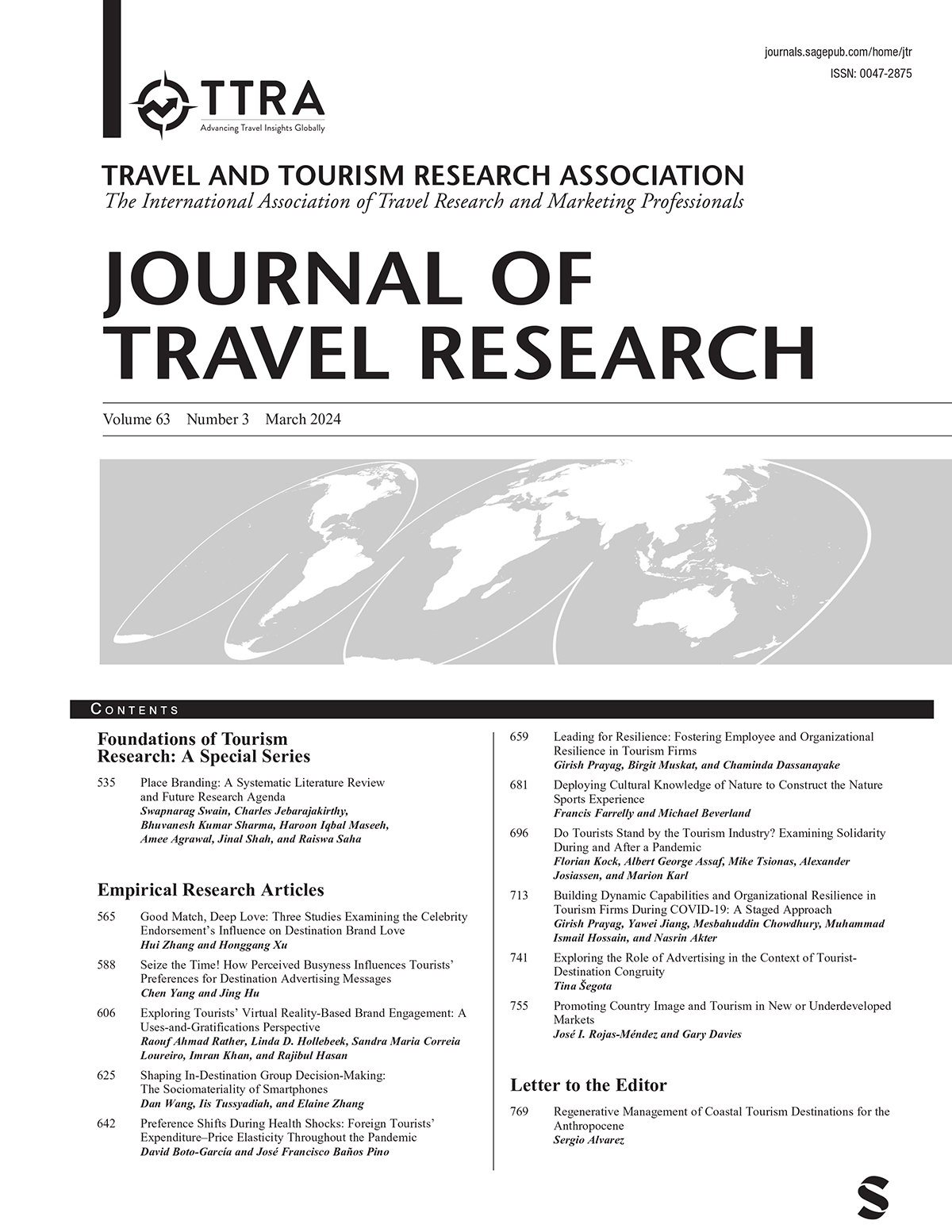“I Love It” Versus “I Recommend It”: The Impact of Implicit and Explicit Endorsement Styles on Electronic Word-of-Mouth Persuasiveness
IF 7
2区 管理学
Q1 HOSPITALITY, LEISURE, SPORT & TOURISM
引用次数: 2
Abstract
Consumers usually endorse tourism products differently when sharing positive electronic word-of-mouth (eWOM). This research examines the relative persuasiveness of two endorsement styles, that is, explicit endorsement (e.g., “I recommend it”) and implicit endorsement (e.g., “I love it”). Drawing on the persuasion knowledge model, we propose that explicit endorsements are less persuasive than implicit endorsements because the former trigger stronger persuasion knowledge. We further argue that source trustworthiness mitigates the persuasion effect difference between the two endorsement styles. This article assesses these hypotheses across different sources (anonymous reviewers, friends, influencers), channels (online community, social commerce platform, social networking app), and products (hotels, restaurants) using secondary data analysis and two experiments. Three studies provide support for our hypotheses. By revealing the relationship between endorsement styles and eWOM persuasiveness, this article provides important implications for implementing effective product endorsement.“我爱它”和“我推荐它”:内隐和外显背书风格对电子口碑说服力的影响
消费者在分享积极的电子口碑时,对旅游产品的认可通常是不同的。本研究考察了显性背书(如“我推荐它”)和隐性背书(如“我喜欢它”)两种背书风格的相对说服力。利用说服知识模型,我们提出显性支持不如隐性支持有说服力,因为前者触发更强的说服知识。我们进一步认为,信息源可信度可以缓解两种背书风格之间的说服效果差异。本文通过二次数据分析和两次实验,评估了不同来源(匿名评论者、朋友、影响者)、渠道(在线社区、社交商务平台、社交网络应用程序)和产品(酒店、餐馆)的这些假设。三项研究为我们的假设提供了支持。本文通过揭示代言风格与eom说服力之间的关系,为实施有效的产品代言提供重要启示。
本文章由计算机程序翻译,如有差异,请以英文原文为准。
求助全文
约1分钟内获得全文
求助全文
来源期刊

Journal of Travel Research
HOSPITALITY, LEISURE, SPORT & TOURISM-
CiteScore
18.90
自引率
9.00%
发文量
66
期刊介绍:
The Journal of Travel Research (JTR) stands as the preeminent, peer-reviewed research journal dedicated to exploring the intricacies of the travel and tourism industry, encompassing development, management, marketing, economics, and behavior. Offering a wealth of up-to-date, meticulously curated research, JTR serves as an invaluable resource for researchers, educators, and industry professionals alike, shedding light on behavioral trends and management theories within one of the most influential and dynamic sectors. Established in 1961, JTR holds the distinction of being the longest-standing among the world’s top-ranked scholarly journals singularly focused on travel and tourism, underscoring the global significance of this multifaceted industry, both economically and socially.
 求助内容:
求助内容: 应助结果提醒方式:
应助结果提醒方式:


